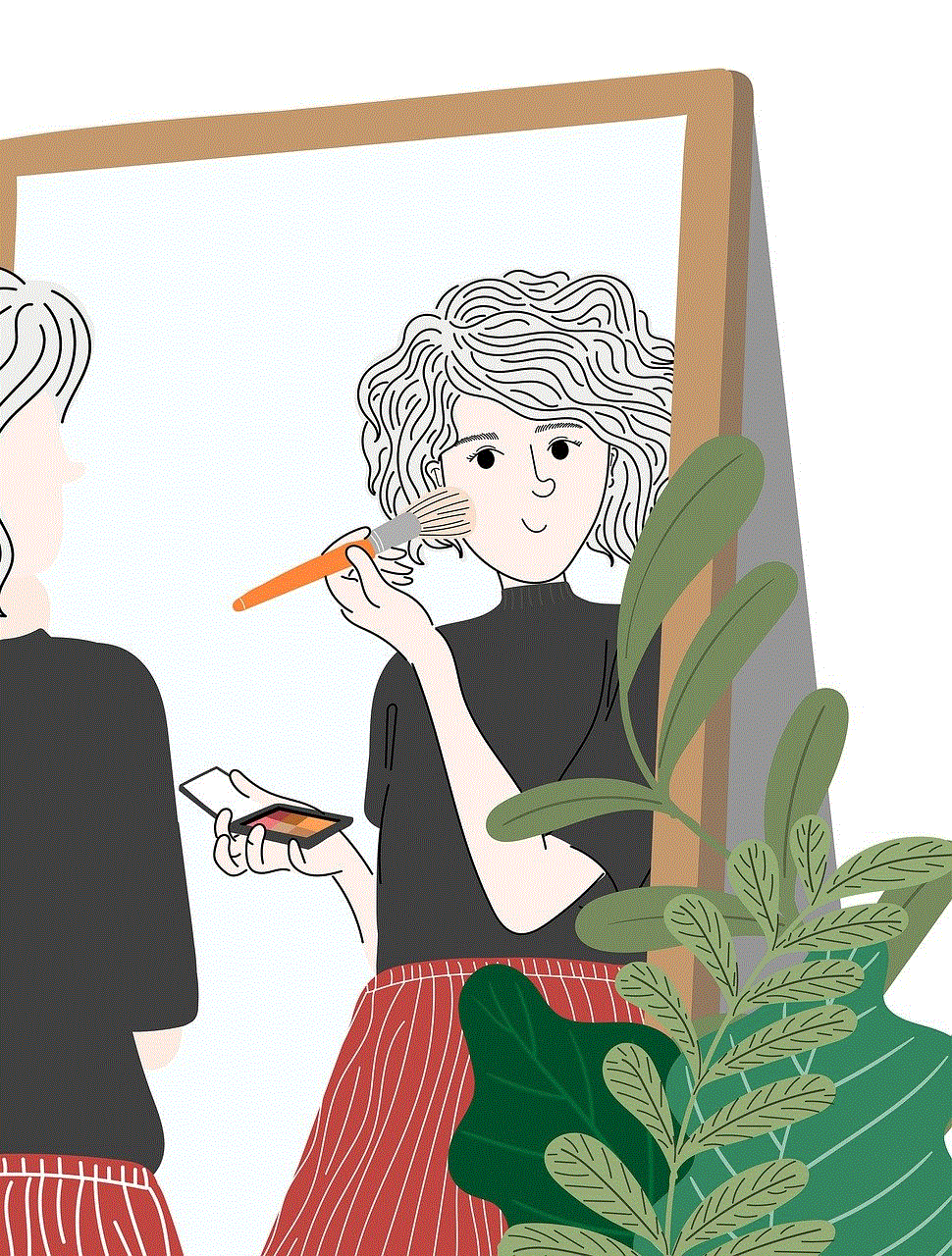can you remove likes on instagram
Instagram has become one of the most popular social media platforms in recent years, with over 1 billion active users worldwide. With its focus on visual content, it has become a hub for sharing photos and videos, connecting with friends and family, and even promoting businesses and brands. However, as with any social media platform, there are certain features that users may want to change or remove. One such feature is the ability to like posts. In this article, we will explore the question – can you remove likes on Instagram ?
To answer this question, we first need to understand what likes on Instagram are and how they work. Likes, also known as “hearts”, are a way for users to show their appreciation for a post. When someone likes a post, a heart icon appears under the post, indicating the number of likes it has received. This feature was introduced in 2011 and has since become a key component of Instagram’s user experience. However, as the platform has evolved, many users have started to question the significance of likes and whether they can be removed.
The short answer to the question is – no, you cannot remove likes on Instagram. Instagram does not have a feature that allows users to remove likes from their posts or from other users’ posts. Once a like is given, it is permanent and cannot be undone. This means that if you accidentally like a post, or if you no longer want to show your appreciation for it, there is no way to remove the like.
However, there are a few workarounds that some users have found to hide or delete likes on Instagram. One way is to block the user who liked the post. When a user is blocked, their likes and comments on your posts will no longer be visible to you. This can be a helpful solution if you do not want to see a particular user’s likes on your posts. However, it does not remove the like entirely, as the user can still see that they have liked the post.
Another option is to set your account to private. When your account is private, only your approved followers can see your posts and likes. This means that if someone who is not following you likes your post, their like will not be visible to anyone except them. However, this also means that your posts and likes will not be visible to anyone who is not following you, which may not be ideal if you are using Instagram for business or brand promotion.
Some users have also found ways to hide their likes using third-party apps or scripts. These apps allow users to customize their Instagram experience by hiding likes, comments, and other features from their feed. However, using these apps can be risky as they may violate Instagram’s terms of service and result in your account being suspended or banned.
Now that we have established that removing likes on Instagram is not possible, let’s explore why someone may want to do so. One reason could be to maintain privacy. Users who are conscious of their online presence may not want others to see what posts they have liked, especially if they are personal or sensitive in nature. This is where the option to hide likes using third-party apps may come in handy.
Another reason could be to manage engagement on a post. As mentioned earlier, likes are a way for users to show their appreciation for a post. However, in recent years, the significance of likes has shifted from being a measure of popularity to a measure of self-worth and validation. This has led to a phenomenon known as “like culture”, where users may feel pressured to get a certain number of likes on their posts to feel accepted or successful. This pressure can also extend to businesses or brands using Instagram for promotion, as they may feel the need to get a certain number of likes to be considered successful. In such cases, removing likes from posts may help to alleviate this pressure and focus on creating quality content rather than chasing likes.
Moreover, some users may simply want to declutter their Instagram feed and remove any distractions. Seeing a high number of likes on a post can be overwhelming for some users, and removing them can help create a more streamlined experience.
While Instagram does not have a feature to remove likes, it does offer the option to disable comments on posts. This can be helpful for users who do not want to see any comments or likes on their posts. However, it also means that you will not receive any feedback or engagement from your followers.
In conclusion, removing likes on Instagram is not possible through the platform’s features. However, there are some workarounds that users have found to hide or delete likes. While these options may be helpful for some, they are not foolproof and may come with their own set of risks. Ultimately, it is up to the individual user to decide whether they want to keep or remove likes on their Instagram posts. As the platform continues to evolve, it will be interesting to see if Instagram introduces any new features related to likes and their management. Until then, users will have to make do with the options available.
lookup phone number facebook
In today’s digital age, social media has become an integral part of our daily lives. With the rise of platforms like facebook -parental-controls-guide”>Facebook , we have access to a vast network of people from all over the world. As a result, it has become easier than ever to connect with friends, family, and even strangers. However, with this increased connectivity, there has also been a rise in concerns over privacy. One such concern is the ability to lookup phone numbers on Facebook.
Lookup phone number Facebook is a feature that allows users to search for a person’s profile on the platform using their phone number. This feature has been around for a while, but it has gained more attention recently due to various privacy issues. While some may find this feature convenient, others see it as a violation of their privacy. In this article, we will delve deeper into the concept of lookup phone number Facebook and discuss its implications.
First and foremost, let’s understand how this feature works. When a user signs up for Facebook, they are required to provide their phone number for security purposes. This number is then linked to their account, and it becomes searchable on the platform. This means that anyone who has your phone number can find your profile on Facebook, even if they are not your friends. This feature also works the other way around, where you can search for someone’s profile using their phone number, even if you don’t have them on your friend’s list.
On the surface, this feature seems harmless, but it has raised concerns over privacy and security. One of the main concerns is the potential for stalking and harassment. With just a phone number, a stranger can easily find someone’s profile on Facebook and access their personal information, such as their name, profile picture, and even their location. This can make individuals vulnerable to cyberstalking and identity theft. Moreover, it can also lead to unwanted messages and calls from strangers, which can be a nuisance and cause distress to the user.
Another concern is the misuse of this feature by scammers and hackers. With the rise of online scams and frauds, it has become crucial to safeguard our personal information. Lookup phone number Facebook can be used as a tool for scammers to gather personal information about potential victims. They can use this information to impersonate someone and trick others into giving away their sensitive data. This can have severe consequences, such as financial loss and identity theft.



Apart from these concerns, there is also the issue of consent. Many users are not aware that their phone number is searchable on Facebook, and they have not given their consent for it to be used in this manner. This raises questions about Facebook’s privacy policies and whether they are doing enough to protect their users’ data. Moreover, this feature can also lead to the exposure of users’ phone numbers to people they do not want to share it with, such as ex-partners or estranged family members.
In response to these concerns, Facebook has made some changes to the lookup phone number feature. They have introduced an option for users to opt-out of this feature, meaning their phone number will not be searchable on the platform. However, this feature is not available in all countries, and many users are still unaware of its existence. This has led to calls for more stringent privacy laws and regulations to protect users’ data.
Despite the concerns surrounding lookup phone number Facebook, there are also some potential benefits to this feature. For instance, it can be helpful in reconnecting with old friends or family members whose contact information we might have lost. It can also be useful in finding and connecting with business contacts. Moreover, it can help in situations where someone needs to contact a person urgently, and their only available information is their phone number.
In conclusion, lookup phone number Facebook is a controversial feature that has sparked debates on privacy and security. While it can be useful in certain situations, it also has the potential to be misused and cause harm to individuals. It is essential for Facebook to take the necessary steps to protect its users’ data and ensure that their privacy is not compromised. As users, we must also be cautious about sharing our personal information on social media and be aware of the potential risks involved.
find a birthday
Birthdays are a special time of year that is celebrated by people all around the world. It marks the day of a person’s birth and is often seen as a day of celebration, reflection, and gratitude. Every year, people eagerly anticipate their birthdays, planning parties, receiving gifts, and spending time with loved ones. But have you ever wondered how this tradition of celebrating birthdays came to be? In this article, we will explore the history of birthdays and how they are celebrated in different cultures.
The earliest known celebration of birthdays can be traced back to ancient Egypt, around 3,000 B.C. The pharaohs were believed to be gods, and their coronation day was seen as their “birth” as a god. Therefore, it was celebrated as a special day with feasts and lavish gifts. However, common people didn’t celebrate their birthdays as it was considered an exclusive celebration for the elite.
The ancient Greeks also had a strong belief in the importance of birthdays. They believed that each person had a protective spirit that attended their birth and stayed with them throughout their life. This spirit was symbolized by a person’s birth date, and on that day, the person would offer prayers, make offerings, and celebrate with friends and family. It was also believed that the evil spirits were particularly active on a person’s birthday, so friends and family would come together to protect the birthday person from any harm.
In ancient Rome, birthdays were celebrated as a religious event. The Romans would offer sacrifices and make offerings to the gods on their birthdays, believing that it would bring good luck and protect them from harm. As the Roman Empire expanded, this tradition spread to other parts of the world, and the celebration of birthdays became more widespread.



During the Middle Ages, birthdays were not celebrated in Europe due to the influence of Christianity. Birthdays were seen as a pagan tradition and were not recognized by the church. However, the celebration of birthdays was still observed in some parts of Europe, particularly among the wealthy and royalty.
It wasn’t until the 18th century that the celebration of birthdays became more popular among the common people. With the rise of the industrial revolution, people started moving to cities, and family members were often scattered across different regions. Birthdays became an opportunity for families to come together and celebrate, creating a sense of community and belonging.
In the 19th century, the modern birthday celebration as we know it today started to take shape. Birthday cakes, candles, and the tradition of blowing out candles and making a wish were introduced. The number of candles on the cake was believed to represent the number of years a person had lived, and blowing them out was seen as a way to send prayers and wishes to the gods.
As time passed, birthday celebrations became more elaborate, with the introduction of gifts and cards. In the 20th century, the commercialization of birthdays began, with companies manufacturing cards, decorations, and gifts specifically for birthdays. This further popularized the celebration of birthdays and made it a significant event in people’s lives.
Today, birthdays are celebrated in various ways, depending on culture and tradition. In many Western cultures, birthdays are seen as a time for lavish parties, extravagant gifts, and celebrations with friends and family. In some Asian cultures, birthdays are not celebrated until a person reaches a significant age, such as 60 or 70.
In many Latin American countries, the celebration of birthdays is closely tied to religious beliefs. It is often celebrated with a mass, followed by a party with traditional food and music. In some African cultures, birthdays are not celebrated at all, with the focus being on celebrating the birth of a new year instead.
In recent years, the trend of celebrating “milestone birthdays” has become popular. These birthdays mark significant ages such as 18, 21, 30, 40, etc. These milestones are seen as a transition from one phase of life to another and are often celebrated with extravagant parties and gifts.
Another trend that has gained popularity is the concept of “birthday experiences.” Instead of traditional gifts, people are opting to celebrate their birthdays by going on a trip, trying out new adventures, or participating in meaningful acts of service. This trend reflects a shift towards valuing experiences over material possessions.
In today’s age of social media, birthdays have also become a way to showcase one’s life, with people posting photos, videos, and messages on their social media accounts. It has become a way to connect with friends and family, both near and far, and to receive well-wishes and love from them.



In conclusion, birthdays are a significant event in people’s lives, and the way they are celebrated has evolved over time. From ancient religious rituals to extravagant parties, birthdays have truly stood the test of time. It is a time to celebrate life, reflect on the past year, and look forward to the future. So, the next time you blow out the candles on your birthday cake, remember the rich history and traditions that have shaped this beloved celebration.
